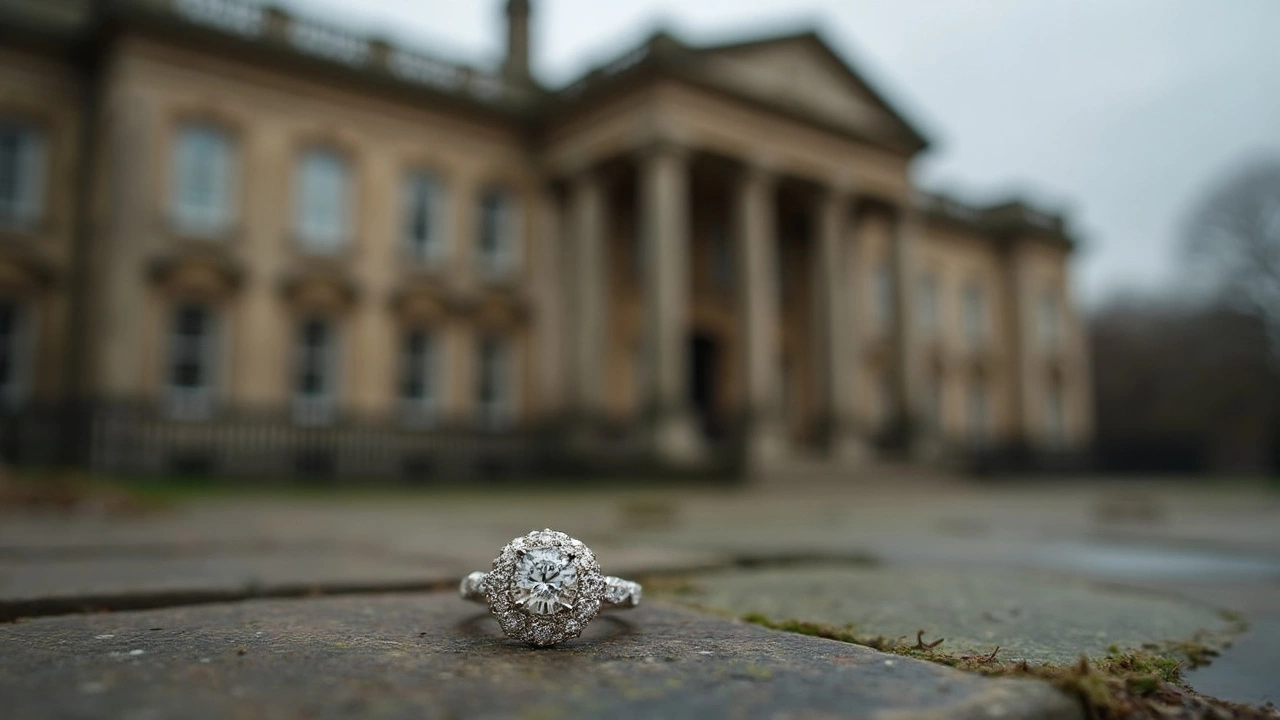So, you called off the engagement. Now, you're staring at that ring and wondering who should keep it. It's not just a piece of jewelry, right? For many, that little shiny thing is packed with memories, promises, and maybe a few tears.
Before diving into the nitty-gritty, let's clear one thing up - there's no one-size-fits-all answer here. Different factors like emotions, legal rules, and personal agreements all play roles. Plus, if you're living in the US, the state you’re in might say something different about it than the next one over.
Understanding the emotional and legal maze of engagement ring ownership is crucial. We'll break down how varying state laws can impact who keeps the ring, explore the emotional ties involved, and give you tips on dealing with the whole thing like a champ. Stick around to ensure you’re making a move that feels right for everyone involved.
- The Emotional Significance of the Engagement Ring
- Legal Considerations and Variations by State
- Handling the Situation Gracefully
- Practical Tips for Decision Making
The Emotional Significance of the Engagement Ring
Engagement rings are more than just a piece of bling on your finger. They symbolize love, commitment, and a promise of a future together. It's like a tiny beacon lighting the path towards 'forever.' Many folks attach memories to these rings, from the moment they first wore it to all the dreams they’ve built around it.
For some, the ring represents milestones. Maybe it marks the first time their partner got down on one knee, or the moment family members gathered to celebrate the big 'I said yes!' It can bring back the warmth and joy of those days, almost like a Pandora's box of emotions.
But here's the thing - when an engagement ends, the ring's emotional weight can shift. While it used to be a promise of the future, it might now feel like a relic of what might've been. This emotional complexity is why deciding who keeps the engagement ring can be so tough. No one wants something that could stir up sadness every time they look at it, yet parting with it can feel like parting with all those happy memories.
There's a lot of talk about how the meaning of a ring can change post-breakup. It's not just about letting go of a partner but sometimes letting go of a shared dream. Check out this surprising fact: a survey found that over 40% of people felt the ring's sentimental value was even more important than its monetary worth. This says a lot about how deeply people connect emotionally with their rings.
Ultimately, deciding what happens with the ring is not a black-and-white decision. It's tangled with feelings and memories that might take time to untangle. It helps to take note of these emotions, whether you're the one giving it back or the one choosing to keep it.
Legal Considerations and Variations by State
When it comes to who keeps the engagement ring, the rules can be as varied as the people who give them. Yep, the golden rule is, there isn't one rule. It's more like a patchwork of laws that change depending on where you are in the U.S.
Let's start with the states that see the ring as a "conditional gift." This means the ring is given on the condition that marriage actually happens. If the wedding is off, states like New York and Michigan typically say the giver can ask for it back, no strings attached (well, other than the whole broken engagement thing).
Now, head over to California or Montana, and you'll find a "no-fault" approach. Here, it doesn't matter why the engagement went kaput—even if someone's to blame—whoever received the engagement ring gets to keep it. The idea is to avoid digging into who did what when the emotional stakes are already high.
Then, there’s the "fault rule" in states like Kansas and Georgia. In these places, who keeps the ring could depend on why the engagement was called off. If the person who broke the engagement got the ring, they might need to return it, whereas if the giver broke it off, they could be out of luck.
It seems complicated, right? Well, it doesn't have to be if you know the laws and handle it openly. This way, both parties can find a solution that feels fair. Whether you’re in a "no-fault" or "conditional gift" state, getting legal advice can clear the muddy waters.

Handling the Situation Gracefully
Ending an engagement can feel like navigating a minefield, especially when it comes to the question of who keeps the engagement ring. Emotions might be running high, but there are ways to approach the topic that minimize friction and preserve a sense of dignity.
First things first, communicate openly. Sit down with each other to discuss the situation. It might feel uncomfortable at first, but addressing it head-on can prevent misunderstandings down the road. Take turns sharing your thoughts and listen actively.
Next, consider the sentiment attached to the ring. If the ring is a family heirloom, both parties might agree it's best for it to return to the original owner's family. On the other hand, if the ring is newly bought, the couple might decide to either keep or sell it and split the proceeds.
Legal rules can vary by state, but generally, engagement rings are seen as conditional gifts, given on the promise of marriage. If either party broke off the engagement, the ring often goes back to the giver. However, there are exceptions, so check local laws if needed.
If you're finding it tough to talk it out directly, consider seeking third-party mediation. A counselor or legal advisor can offer a neutral perspective, which often helps diffuse tension.
- Have an honest conversation.
- Assess sentimental value and legal aspects.
- Consider getting help from a mediator if discussions hit a snag.
Whatever you decide, aim for a solution that respects both parties. Doing so not only helps you move forward peacefully but also sets a positive tone for resolving future differences.
Practical Tips for Decision Making
When an engagement crumbles, figuring out what to do with the engagement ring can feel overwhelming. But don't worry, there are ways to make this decision a bit easier, and less like a bad TV drama.
First things first: take a breather. Emotions are running high, and you might just need a moment to cool down before tackling the ring question. A little time can provide much-needed clarity. Try to approach the discussion about the ring as calmly as possible.
- Communication is Key: Open a line of communication with your former partner. Sharing your feelings and discussing your viewpoints can make this challenging situation a bit smoother.
- Consider the Timing: If the breakup is fresh, perhaps set the ring aside for now. Sometimes perspective comes with time, and it might be clearer later who should keep it.
- Check the Laws: Find out what your state's laws say about ring ownership. In some places, it's seen as a gift, while others might treat it as a conditional gift that returns to the giver if the marriage doesn't happen.
- Personal Agreements: If you and your partner had any verbal or written agreements about the ring in case of a breakup, those should be honored. They might not be legally binding, but they reflect good faith.
- Seek Mediation: If things get sticky and agreements seem impossible, a mediator can help navigate the situation, ensuring both parties feel heard and understood.
Deciding who keeps the ring after the engagement ends isn't an easy task, but with some time, honesty, and maybe a bit of outside help, it doesn't have to turn into a courtroom drama. Remember, this decision is a step toward closure and moving forward.
